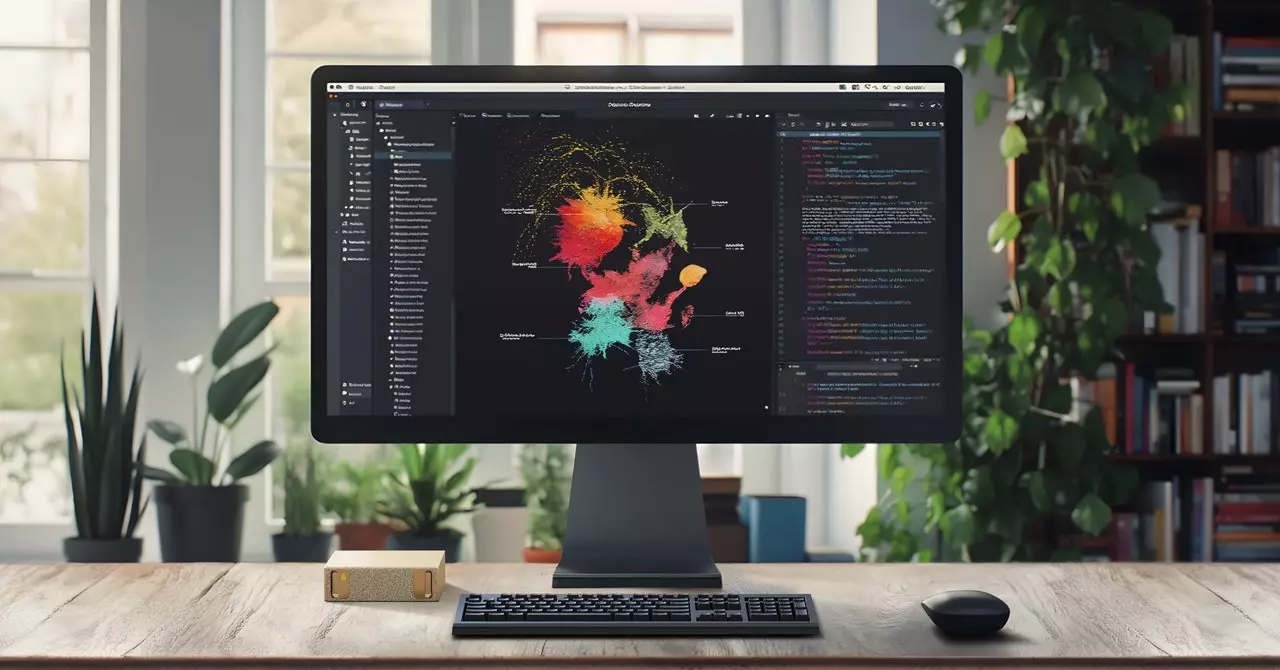In recent years, artificial intelligence (AI) has transitioned from a niche, experimental technology to a critical component of contemporary digital society. Businesses and research institutions alike have invested heavily in AI systems to harness its immense potential, driving demand for specialized computing hardware. Now, Nvidia—already a leader in chip production for AI applications—has taken a significant leap in this domain. With an announcement to release a personal AI supercomputer, dubbed “Digits,” Nvidia is poised to empower individuals to engage with advanced AI technologies directly from their own homes or offices.
Nvidia’s Digits will be available for purchase this coming May with a retail price starting at $3,000. This desktop machine is designed for convenience, being roughly the size of a small book, making it an accessible option for hobbyists and professionals alike. Heart of the system is the GB10 Grace Blackwell superchip, meticulously engineered to enhance computational efficiency for training and executing AI models. The Digits machine features a robust configuration, including 128 gigabytes of unified memory and an impressive 4 terabytes of NVMe storage, capable of accommodating expansive datasets and sophisticated AI programs.
This initiative signifies more than just the sale of a machine; it reflects a transformative moment in the democratization of AI technology. “By placing an AI supercomputer on the desks of every data scientist, AI researcher, and student, we are empowering the next generation to shape the age of AI,” stated Jensen Huang, Nvidia’s founder and CEO. This sentiment resonates strongly amidst today’s increasing public interest in open-source projects and DIY AI solutions.
Nvidia’s Digits is engineered to support a single large language model with up to 200 billion parameters—a testament to its capability and complexity. In comparison, today, users would generally resort to renting cloud resources from entities like Amazon Web Services or Microsoft Azure, or resorting to custom-built setups comprising specialized chips. However, the convenience offered by Digits could significantly lower barriers for experimentation by individual researchers and hobbyists.
The scalability of Digits is notable. When two units are paired using Nvidia’s proprietary high-speed interconnect link, they are capable of running advanced models such as Meta’s Llama model, which boasts an impressive 405 billion parameters. This level of accessibility contrasts sharply to the traditional limitations imposed by proprietary models housed within expansive data centers owned by Google and Microsoft—those models, while impressive, remain largely inaccessible for individual experimentation.
As the tech landscape evolves, Nvidia’s contributions will likely shape future directions in AI research. The emergence of Digits allows significant opportunities for personalized experimentation with AI, fostering a culture where individuals can explore and innovate with AI technologies without solely relying on corporate cloud infrastructures.
Nvidia’s proactive approach in releasing such technologies could inspire a new wave of innovations and projects at a grassroots level. As individual users gain access to robust computational power, the potential for novel applications may flourish, leading to the discovery of new AI solutions that benefit various industries, from healthcare to entertainment.
While Nvidia’s Digits heralds exciting possibilities, it is essential to recognize the challenges accompanying this evolution. Although the Digits supercomputer offers substantial power at a consumer level, it still pales in comparison to the expansive capabilities of models hosted in large corporate data centers. These organizations benefit from not only greater computational resources but also the intricate integration of support systems, deep learning frameworks, and continuous updates.
Moreover, the very accessibility that Digits offers could introduce concerns regarding AI misuse. The responsibility lies with both Nvidia and the broader AI community to shape ethical guidelines and ensure adherence to responsible AI use as more individuals gain access to potent computational capabilities.
Nvidia’s Digits represents a pivotal moment for personal computing and AI. By making high-performance AI accessible to a wider audience, Nvidia is not just changing the way we interact with technology; it is also reshaping the landscape of AI research and development. The upcoming release of Digits could indeed signify the dawn of a new age in which anyone, from students to independent researchers, can contribute to the AI revolution from the comfort of their own space. As we stand at the edge of this new frontier, the continual interplay between technology, ethics, and creativity will be crucial determinants of the path forward.


Leave a Reply